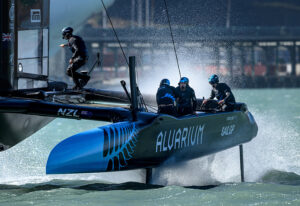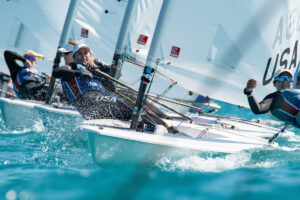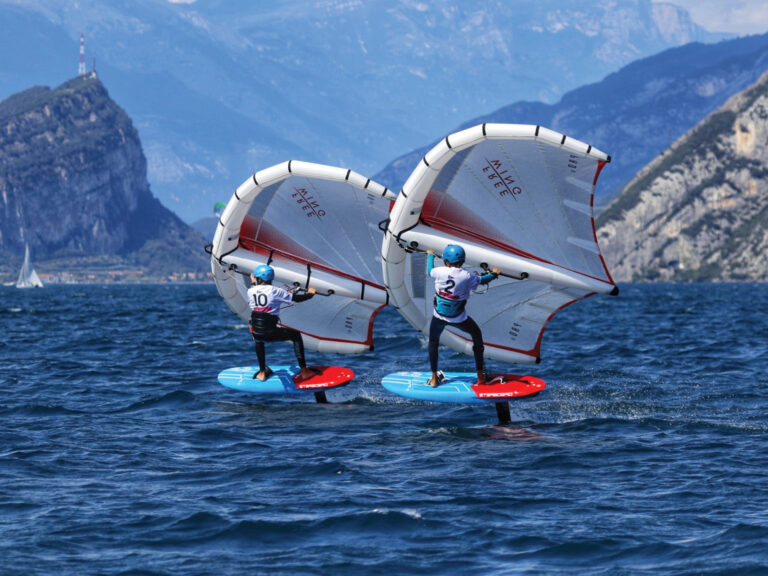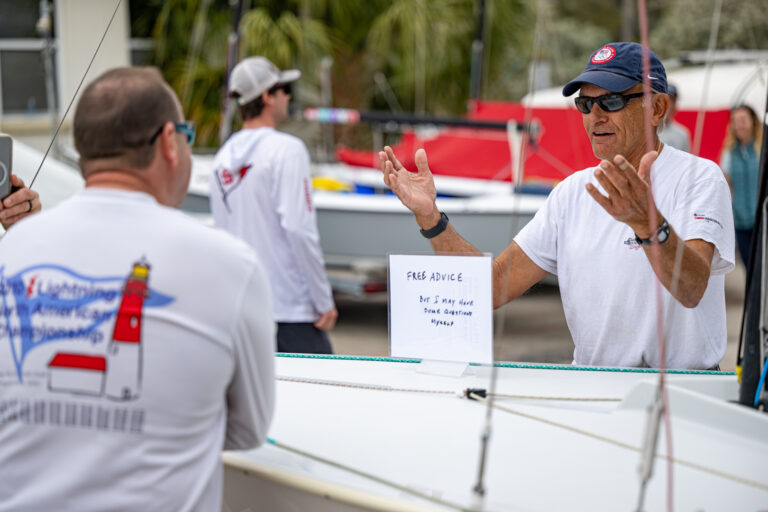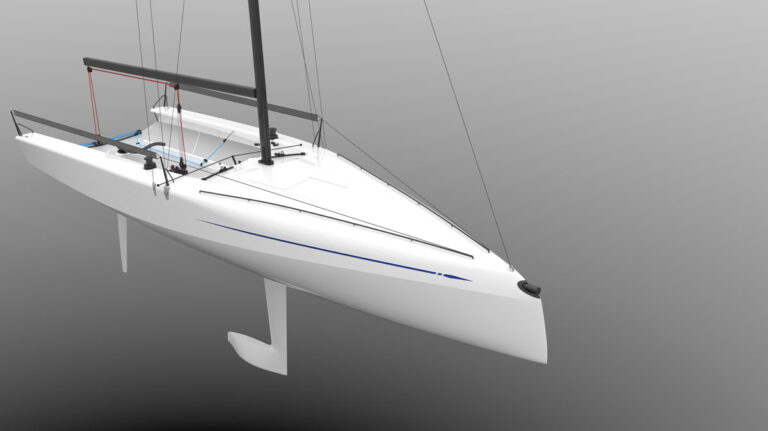At first it sounds pretty outrageous: last month, Dennis Howard, a nearly blind sailor who set out on a voyage from San Diego to Puerto Vallarta, Mexico, on a small but hardy Flicka 20, ran into some bad weather. The gooseneck broke, the boom hit him in the head, and more bad weather was on the way. He called a friend and told of his troubles. The friend called the Coast Guard, which sent a cutter. The Coast Guard arrived on scene and boarded to assess the situation. Howard declared he was fine and wanted to continue his voyage. The Coast Guard decided his life was in danger and that he was engaged in a manifestly unsafe voyage (as their regs apparently allow), and ordered Howard off his vessel, which was abandoned at sea.
The Coast Guard returned Howard to San Diego. Having lost everything, he filed a complaint against the Coast Guard. Let the arguments about jackboots and the Nanny State rip!
Initially, I was incredulous that a sailor, enjoying his God-given right to cruise unmolested across the Pacific’s great blue expanse, accountable only to Neptune and himself, could be forced off his vessel. But the more I think about it, the more complex the issue becomes.
On the one hand, Howard had not set off his EPIRB, had deployed a sea anchor in a seamanlike way, and no doubt had plans to work on that gooseneck. Even if he couldn’t repair the gooseneck, he could sail under jib alone. Going to sea is about overcoming adversity, and, yes, being free to risk your own life. Why should the Coast Guard be empowered to interfere and overrule the skipper’s own judgment?
But then you need to also look at it from the Coast Guard’s point of view (their situation report is here).
They had received a report of a vessel in trouble, and Howard had used the word “emergency” when he contacted his friend. It’s not clear to me what Howard wanted his friend to do in response to his call, but presumably Howard was not intending that the friend call for rescue (if that’s what he wanted he could have set off his EPIRB). Nevertheless, the friend did call the Coast Guard, which, as they must, set out to find Howard.

Little Boat On A Big Ocean: Hard Choice
Now, of course, once they had taken the trouble to find him, the Coast Guard could have respected Howard’s request to continue his voyage. But the Coast Guard tried to help fix the gooseneck and failed. They knew that Howard had taken a blow to the head. And they knew that more bad weather would eventually roll in. They probably thought that, one way or another, they’d have to come back and find Howard again, and the second time the conditions might be a lot worse.
Those facts put the Coast Guard in a tough spot. If they’d allowed Howard to continue his voyage, and he’d died, disappeared, or come to grief in any other way, no doubt the outraged stories would run the other way: “Coast Guard Abandons Blind Sailor To His Death!” Someone, somewhere, would be suing. Maybe even Howard. So deciding to remove Howard and bring him back ashore suddenly seems a lot more reasonable.

Howard’s not happy.
In the end, there really is no right call here, though the call the Coast Guard made was the one that guaranteed Howard’s safety—even if it lost his boat. Ultimately, I think that Howard has to take some responsibility for calling a friend and saying he had an emergency. Once the Coast Guard is notified that there’s an emergency, it’s pretty hard to expect them to back off. So maybe Howard should direct his frustration at his friend.
Blondie Hasler, the great British adventurer and singlehander who, in 1960, helped launch the first singlehanded transatlantic race used to argue that singlehanded sailors should not include single-sideband radios among their equipment. That way, the sailors would take full responsibility for their own safety and fates, and would never be tempted to call for help and put rescuers at risk. No sailor in this modern world of GPS, EPIRBs, and global rescue networks is likely to follow Hasler’s example and completely eschew the idea of rescue, and the comms equipment used to call for it. But for me, the lesson here is simple: if you don’t want to be pulled off your boat by rescue services, don’t make any emergency calls. Period.
What do you think? [Ed.: Send email to Tim Zimmermann here.]



